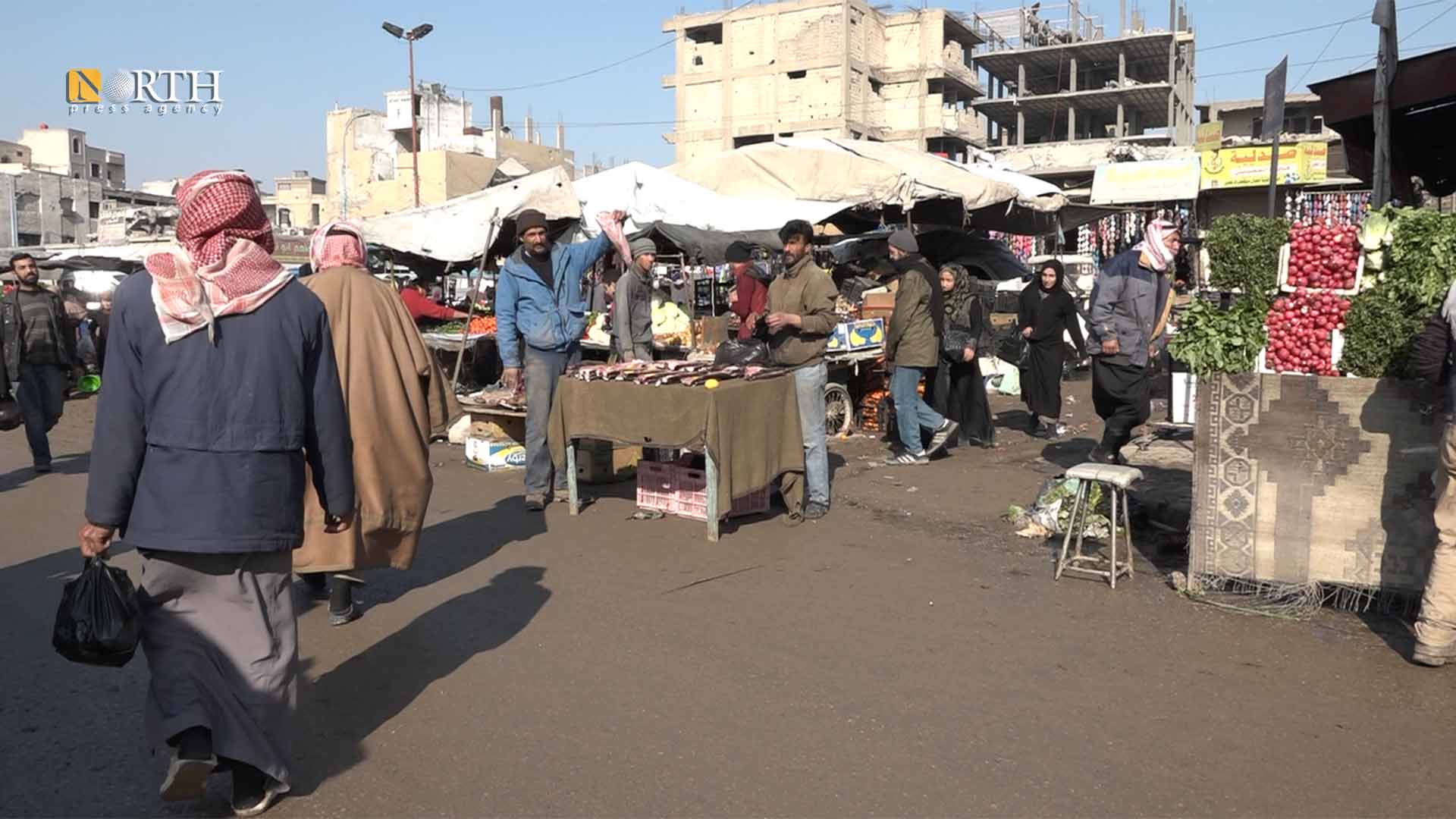RAQQA, Syria (North Press) – Ali al-Khalaf, a taxi driver from Intifada neighborhood in Syria’s northern city of Raqqa, is trying to convince a grocer to cut down the price of the stuff al-Khalaf bought because he cannot afford all of them. If the grocer refused to do so, al-Khalaf would be forced to return some of them.
Al-Khalaf is married and has six children. He earns 15,000 Syrian pounds (SYP), equivalent to about $4, every day. He has to cope with only that money.
Local people in Raqqa city complain about their bad living conditions amid a wave of inflation and a shortage of staple foods in the city’s market such as sugar, shortage of fuel and also deterioration of the quality of bread.
The population in Raqqa city exceeds 320,000 people. Plus, approximately 500,000 people live in Raqqa’s countryside where the majority of them work in agriculture or raise the cattle, according to the Statistic and Planning Bureau in Raqqa.
Record lows both in the level of rainfall and in the level of the Euphrates river, since Turkey has held Syria’s share of water, have had a negative impact on the agricultural production causing severe retreat of crops. As a result, living conditions of the people in the countryside has deteriorated in the last two years.
As for the people in the city, they work in business, construction and in freelance jobs. Other people are employees in institutions run by the Autonomous Administration.
Around 240 factories exist in the city.
Extreme poverty
Al-Khalaf and other families in Raqqa live in extreme poverty, he described. The people are compelled to do without staple things they need because their income is low.
Al-Khalaf calls the related parties in the Autonomous Administration to control the market and monitor the prices set by the traders and monopolists.
Other people interviewed by North Press said the shortage of fuel in the city for over a month has also left a negative impact on all sectors in the city.
Abdulla al-Atrooz, a 30-year-old greengrocer in the Quwatly street in Raqqa city, said people ask for the price of vegetables and fruit but they do not buy them.
“I can tell that the supply institutions do not control the prices set by the traders,” he said.
No complaints
The supply directorate and the consumer protection department in Raqqa city have designated a specific number for the people to call and complain about the hikes in prices or monopoly of food stuff by traders or shopkeepers, Maher Shawish, head of the supply directorate said.
The supply directorate and the consumer protection department conduct monitor patrols in the markets to check if the traders adhere to the prices set by the supply directorate, Shawish said.
“The closure of border crossings is the main reason behind the worsening of the economic conditions and the lines of people waiting in front of shops to purchase sugar.”
Since the implementation of the Caesar Act, a series of economic sanctions meant to pressure the Syrian government into a political solution, the Syrian pound’s value has deteriorated, and markets all over the country suffered a state of economic recession which negatively affected people’s purchasing power.
Although American officials claim that the sanctions are only meant to affect the Syrian government and its allies, some analysts close to the Autonomous Administration are stressing that the sanctions will affect the whole region, including the Autonomous Administration areas.
“Some families are cutting down from three meals per day to two, there is an increase in the number of people purchasing food on credit and families are selling assets and livestock to generate additional income,” the United Nation World Food Program (WFP) tweeted in early July 2021.
A decade after war and conflicts, more than 90% of Syria’s people live below the international poverty line, according to UN reports said.
On January 9, Salman Barudo, co-chair of the AANES Economy Board said they mandated to create a “crisis management team” tasked to monitor the quality of bread and avoid future crisis similar to the crisis of sugar and fuel.
“The crisis management cell will monitor the markets, mills and distribution of fuel in addition to all aspects combined, directly or directly, with the stability of subsistence living.”

